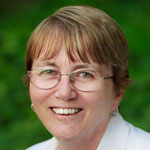
In the last few months, I have read two books discussing the social history of Australia over the last 50 years or so. Two things surprised me, how much has changed, and how little has changed.
In one of these books, I read a quote from a newspaper article dated March 1958 complaining about the behaviour of tennis players: “It is high time that steps were taken to eliminate from tennis the gamesmanship, prima donna-like displays of bad temper, and persistent arguments with umpires.
Umpires should be empowered to deal drastically with objectionable behaviour, as in the case of football. If the tennis player who misbehaves was liable to be required to forfeit his match, or to submit to a period of suspension, there would be few spoilt prima donnas on the courts.” (Born in 1958? What else happened? By Ron Williams, pg. 42).
It could have been written last week!
However, I also read about the improvements to health and safety. Fences around swimming pools, childproof pill bottles, restrictions on the sale of fireworks and firearms have all reduced childhood deaths and injuries. The introduction of sewerage has had huge health benefits and life expectancy has increased by 12 years in the last 50 years.
Yet as I look at our world, there is still rampant greed, that oppresses the poor, with low wages and unacceptable working conditions. There is apathy about modern slavery with many forced into sex trafficking and there is intolerance of differing opinions, leading to violent rages. While we are able to legislate for improvements to our health and safety, we are unable to legislate for changes to people’s hearts.
Scientists Can’t Help, Jesus can
I read this quote from the prominent scientist, Gus Speth, “I used to think the top environmental problems were biodiversity loss, ecosystem collapse and climate change. I thought that thirty years of good science could address these problems. I was wrong. The top environmental problems are selfishness, greed and apathy, and to deal with these we need a cultural and spiritual transformation. And we scientists don’t know how to do that.”
Scientists don’t know how to deal with selfishness, greed and apathy but Christians do. Christians recognise that changes to a person’s attitude cannot be achieved through education, self-discipline or the threat of punishment. Only a relationship with God will change people from the inside out.
History changed when Jesus entered the world and taught about humility, compassion and generosity. The whole Old Testament is evidence of people’s wickedness when left to their own desires. The New Testament shows us the difference that Jesus can make in our lives and communities. Yet the persecution that followed the early believers, tells us that Jesus’ message challenged the social conditions of his day. His message wasn’t welcomed then, and it’s not welcome now.
Hope As An Anchor
As Christians, we have tremendous hope. We have a God who, “causes everything to work together for the good of those who love God and are called according to his purpose for them” (Romans chapter 8 verse 28 NLT).
We have the promise of a new world coming. “But we are looking forward to the new heavens and new earth he has promised, a world filled with God’s righteousness” (2 Peter chapter 3 verse 13).
And we have hope because God can change a human heart, “And I will give you a new heart, and I will put a new spirit in you. I will take out your stony, stubborn heart and give you a tender, responsive heart. And I will put my Spirit in you so that you will follow my decrees and be careful to obey my regulations” (Ezekiel chapter 36 verse 26 to 27).
Hebrews chapter 6 verse 19 tells us that hope is an anchor for our souls. An anchor isn’t much use in the boat. It's only when it’s thrown in the turbulence and depth of the sea that it provides security. Our hope in God isn’t much use until we rely on it to provide us with a sense of security and peace amidst the turbulence of our world.
 Susan Barnes has been involved in pastoral ministry for over twenty years with her husband, Ross. They are now semi-retired and enjoy supporting a number of churches in north-east Victoria. You can find more of Susan’s articles at:
Susan Barnes has been involved in pastoral ministry for over twenty years with her husband, Ross. They are now semi-retired and enjoy supporting a number of churches in north-east Victoria. You can find more of Susan’s articles at:
https://www.pressserviceinternational.org/susan-barnes.html

Susan Barnes has been involved in pastoral ministry for over twenty years with her husband, Ross. They are now semi-retired and enjoy supporting a number of churches in north-east Victoria. You can find more of Susan’s articles at: https://www.pressserviceinternational.org/susan-barnes.html